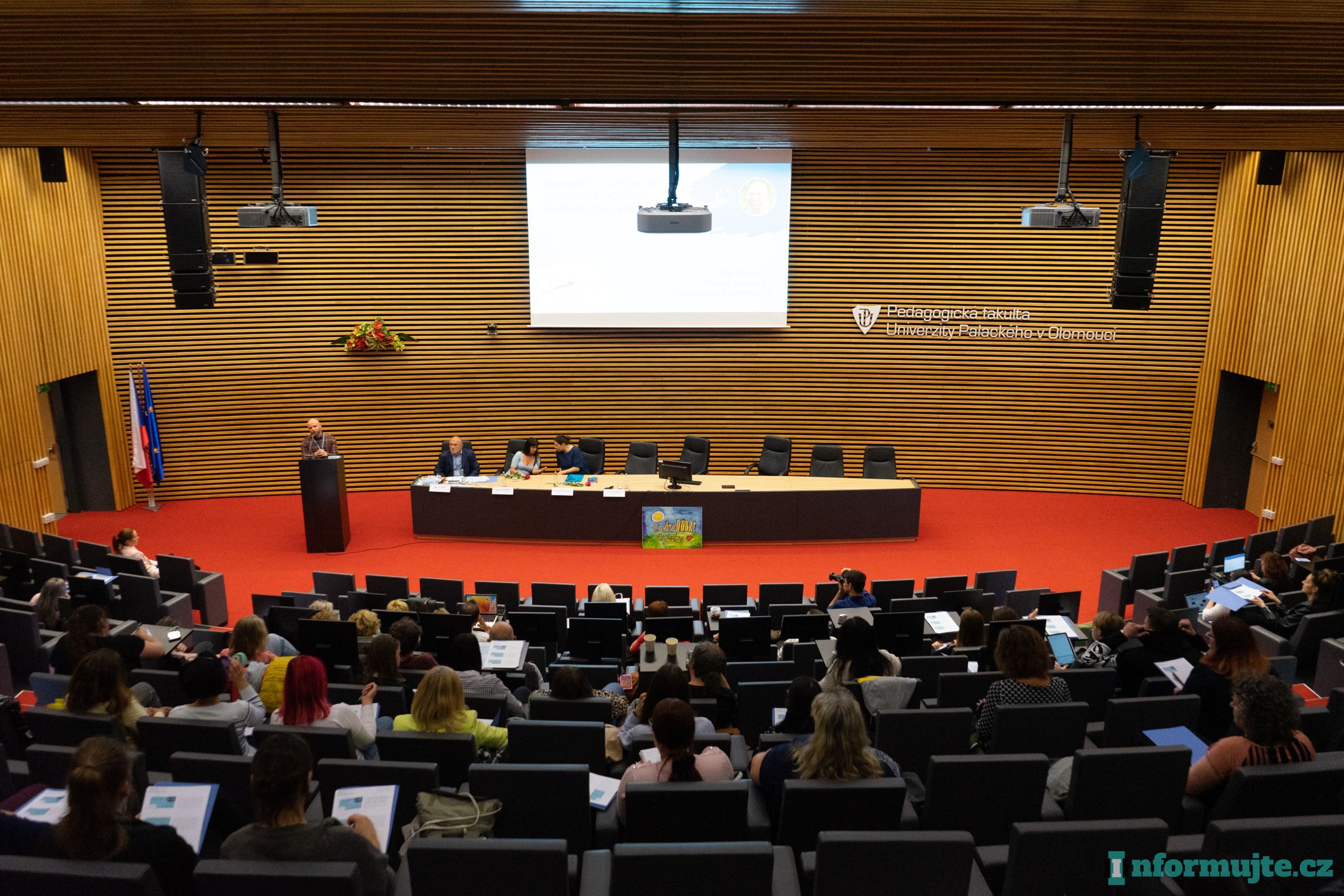1st conference about issues of people on autism spectrum took place on 18th and 19th May 2023 in Olomouc. It was held at the Faculty of Education of Palacký University Olomouc. The organizers were a non-governmental organization Za sklem in a cooperation with Palacký University Olomouc. Za sklem offers help to autistic people as well as social services.
The topic of the conference was autism, its manifestation, how to help autistic people and how autistic people see the world.
The programme of the conference were lectures by Czech and foreign lecturers and workshops. This report covers the first three lecturers that took place on the first day. They were: sexuality of teenagers on the autism spectrum by Petr Eisner, autism and stress by Marjon Kuipers and Leander Westerback van Eertem and myths about Snoezelen by Renata Filatova.
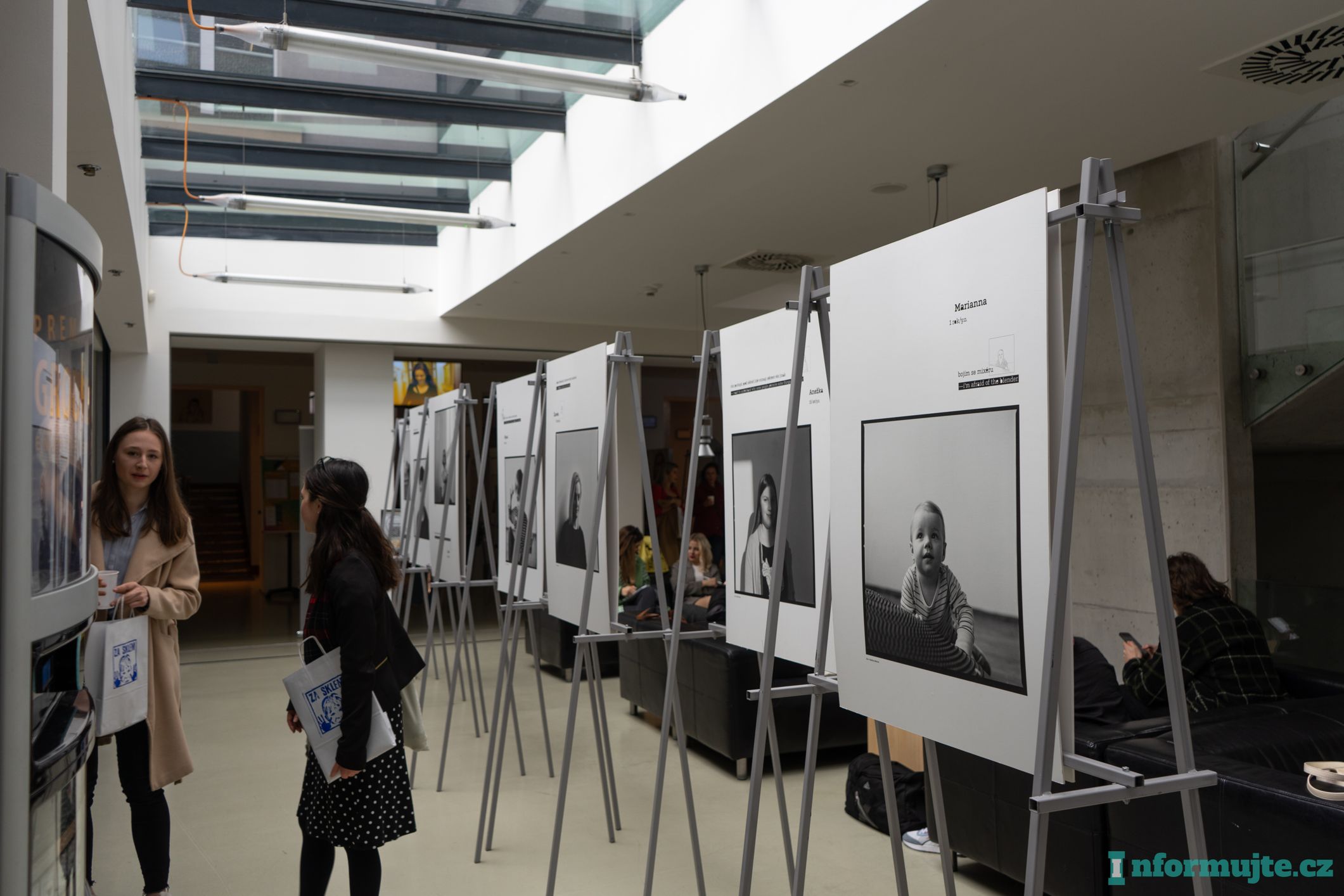
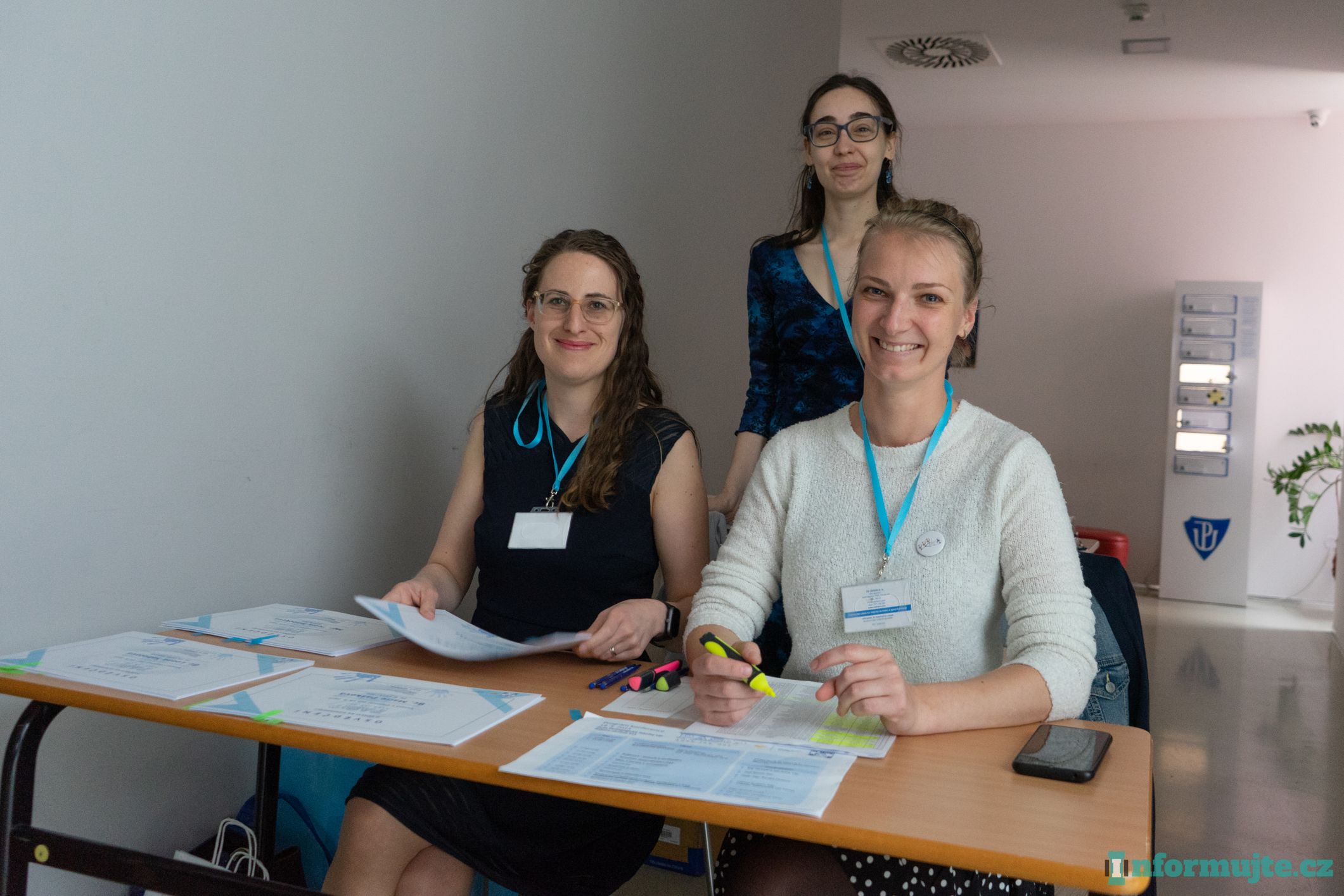



Contemporary state of autism in Czech republic
As per a statement from Kristyna Perutkova, a social worker at Za sklem, there is very low familiarity about autism in the general public. They prepared the conference for one year. Most of the guests of the conference were either people working in social services or students of social work.
What autism is
Autism is a state of mind (psychological condition) which is inborn. It shows/manifests itself in a different social interaction with others than the majority. The others (non-autistic people) can perceive them as weird, asocial, unadaptable, stupid, rude and not interested in others. They have a problem to fit in normal society.
The main reason for it is that the normal society expect each individual to behave in the same way. Members of the normal society don’t think much about the fact that there could be a different viewpoint on the world.
Autistic people have feelings and feel. Yet it is often denied. It’s hard to express emotions for them. They also find it hard to set boundaries so that other don’t break them. They need help with these areas. A communication training from a social worker can help them. It helps them to better fit in society. Afterwards they enjoy a better quality of life.
Autism is hereditary from 70 to 90 %.
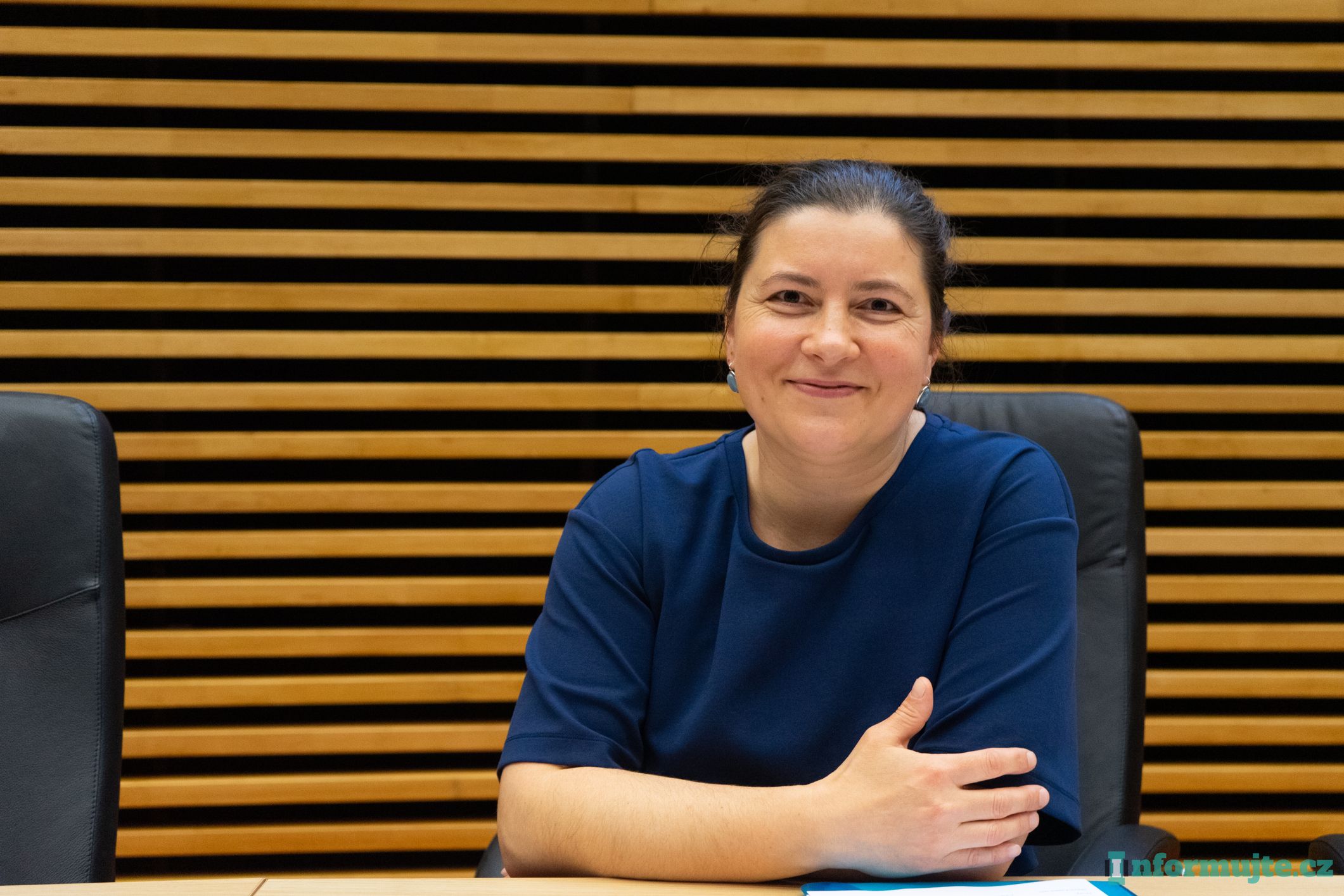
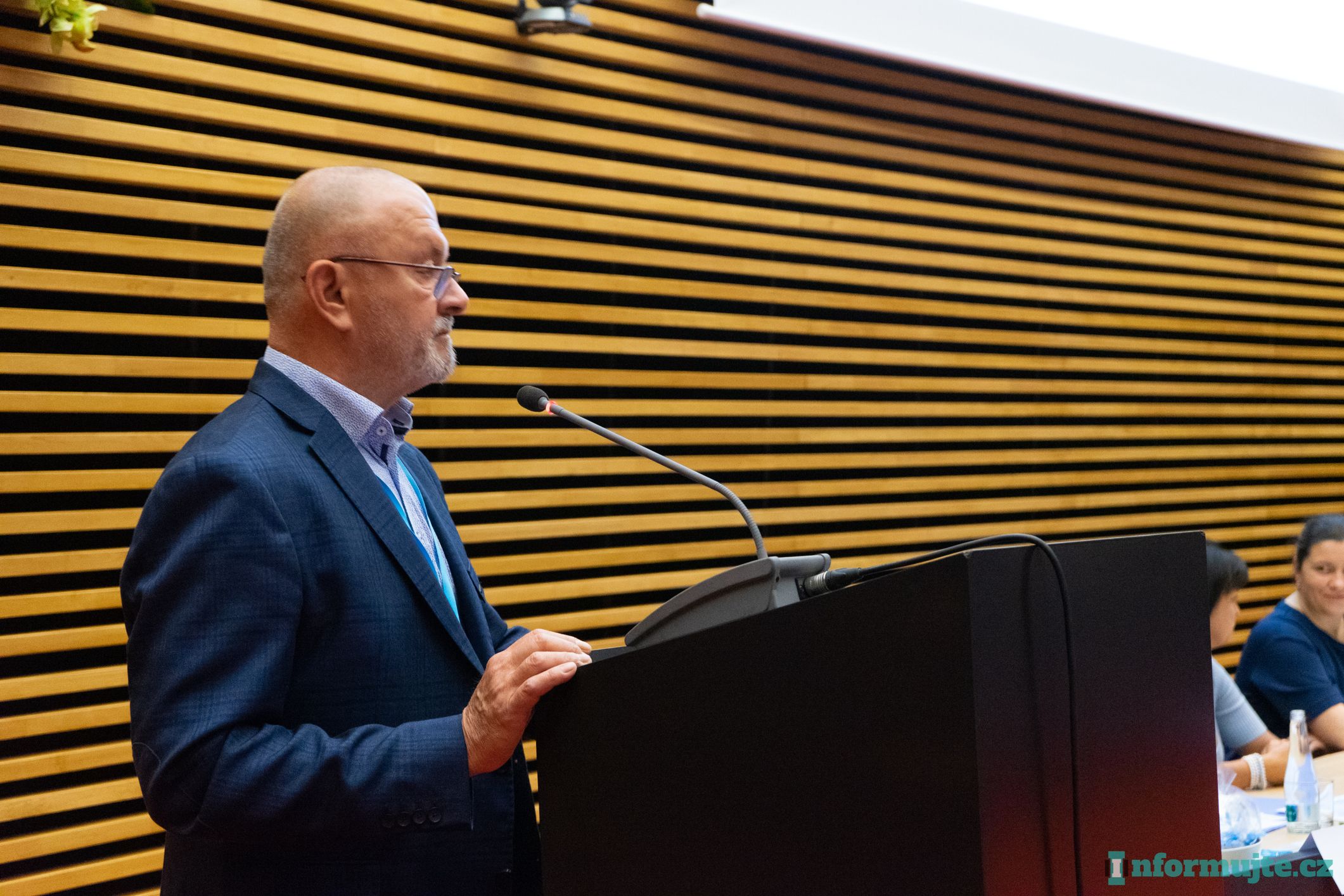
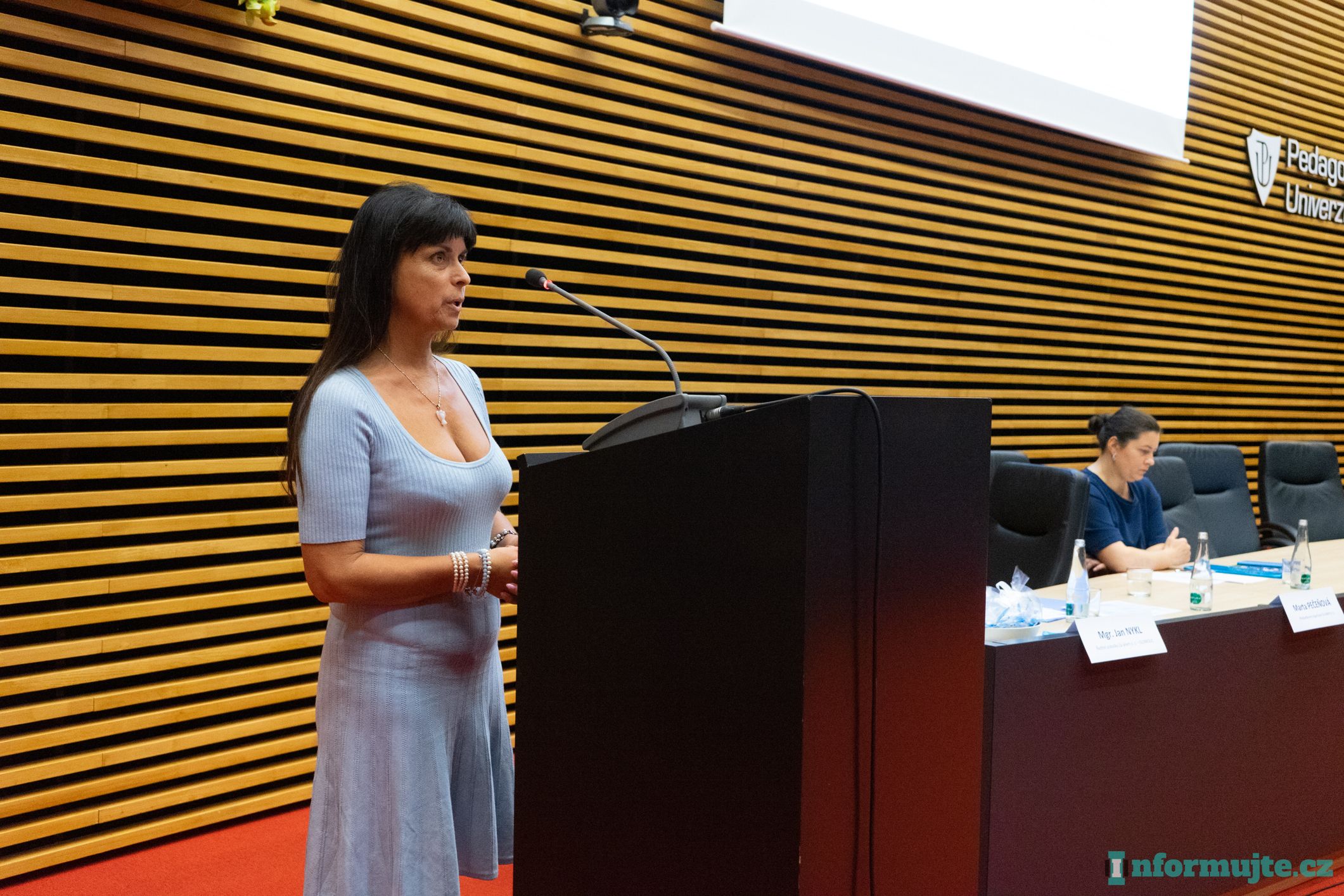
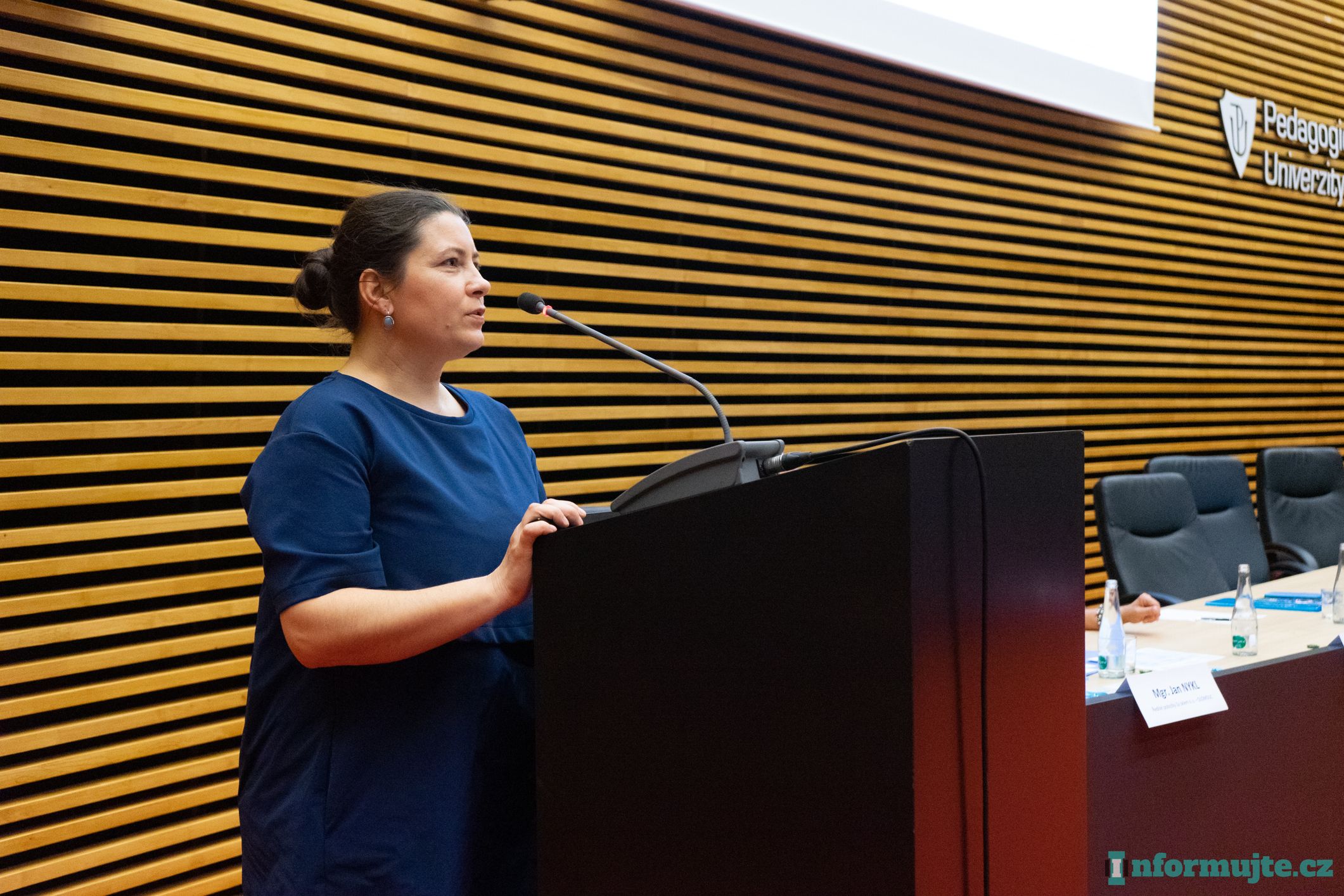
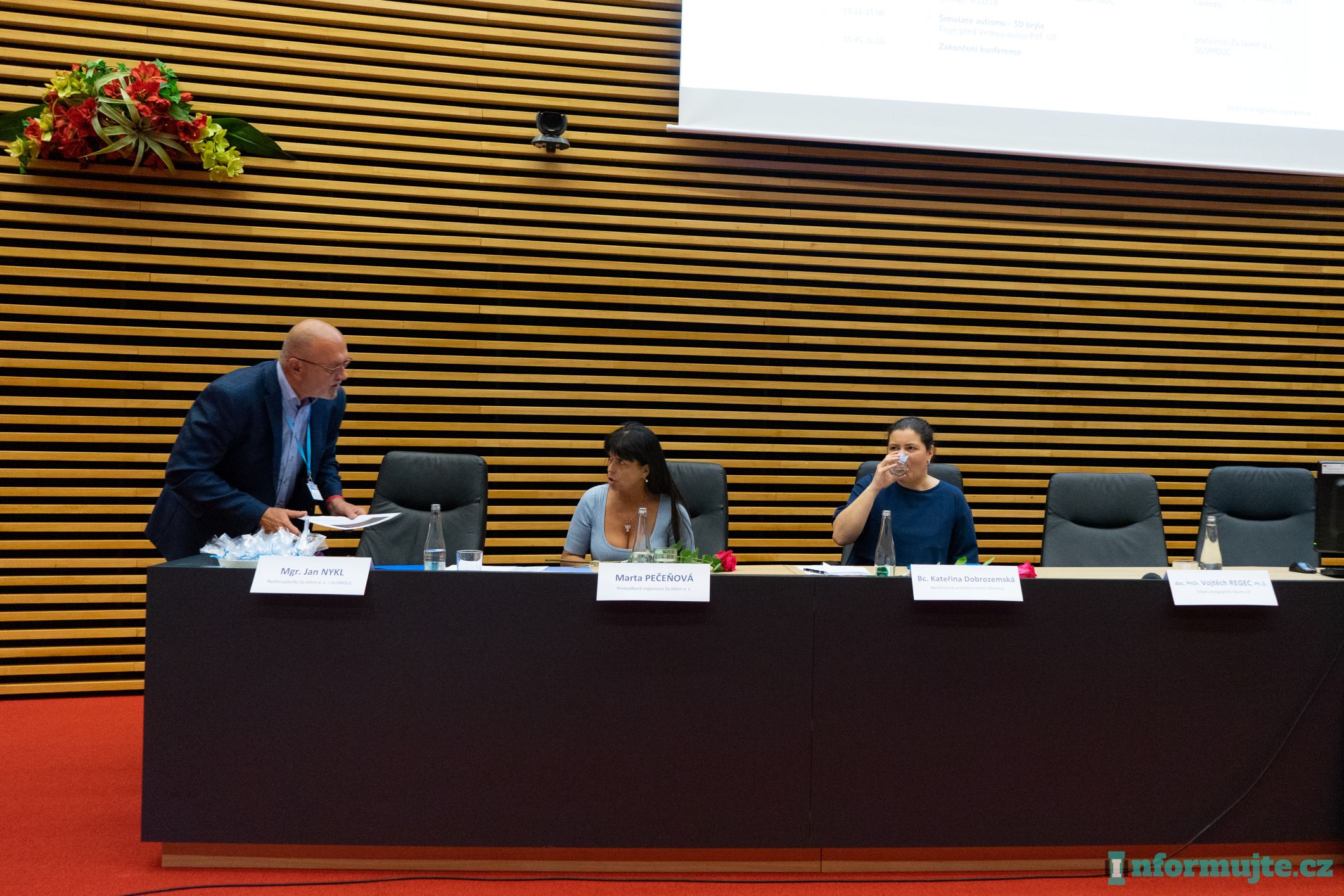
Manifestation and signs of autism of children
Sings of autism among children are various. They don’t react when their name is said out loud. They avoid eye contact. They get angry when they don’t like a taste or a smell. They don’t speak as much as others. They aren’t interested in games where roles must be pretended (Mimicking soldiers with a wooden stick instead of a gun.) They frequently repeat the same phrases and movements: clapping, swaying with legs etc.
Manifestation and signs of autism of older children
Older children don’t understand what others think or feel. Thus they can’t react on others adequately. They like their own daily routine. It’s hard for them to find friends. Spoken things are taken literary. For example a phrase: “Once in a blue moon,” can evoke an expectation that when the Moon is actually blue, that’s the time when it happens/happened. They also don’t like being interrupted or prevented from pursuing their interests and hobbies.
Manifestation and signs of autism of adults
Autism is often undiagnosed in adults. However, it won’t be a problem in the future. Blanket screening on autism of children was introduced. Children are tested between 18 to 24 months of age in the Czech republic.
Undiagnosed adults can have a prevailing feeling they belong nowhere. That they aren’t understood by others and don’t know why. The sings of autism are partly the same as for the older children (previous paragraph) in addition to the text below.
They can feel anxiety in social situations as they don’t know how to behave and react properly. Others don’t explain it to them. The others know it naturally and have never thought about it. They have a problem to understand social clues. One of the examples is they don’t know when to stop talking about their interests and hobbies because they can’t sense body talk of people who they talk to. They can stand too close to others. They like to plan everything they do. A structure gives them a feeling of peace and calmness.
They are good at recognizing small details, patterns, sounds etc.
Asperger syndrome – less severe form
Asperger syndrome is a lighter form of autism. The main signs are a problem in communication and social interaction/behaviour. Asperger’s people have an average or above average intellect. The main issue is not understanding common social situations. They can’t grasp such situations on their own. However, if a social worker explains them how social situations are seen from the other side and how to behave, it simplifies their life.
People with Asperger’s find it hard to recognize intentions of others. It leads them to being manipulated and misused by others.
On the other hand, their good characteristics are: honesty, respecting rules, reliability, consistency and a knack for a detail. It makes them great employees. Unfortunately, working environment is predominantly based on relationships among employees and social norms than the actual working results and merit. It results in them and their work not being appreciated. Sometimes they are mocked.
Asperger’s are more interested in themselves. They don’t want to be a member of any group. They pursue their own interests. I guess it’s slightly different. They would like to be a member of group. However, they are not accepted.
If they join in any group activities, they tend to manage and directs others. Mainly it stems from their conviction/opinion that the given group lacks proper leadership and there is chaos in it. If a group has a proper leader with great ethical and moral values which the Asperger person views as an authentic authority, they have a need neither manage the group nor direct the others.
They are as well as autistic people sensitive to the amount of light, noise and a temperature at a place they are/live. If there are too many of such stimulus, it causes a stress overload and further inadequate reactions which I write about down below.
Sexuality and autistic people
The first lecturer was Petr Eisner from an NGO NEBUĎ NA NULE, z. s. The organization concerns itself with sexuality of teenagers with disabilities and mental disorders. The topic of the lecture was sexuality and adolescence as viewed by the autistic people. Petr Eisner has been working with disadvantaged people for 20 years and teaches at tertiary educational institutions (something between a university and a secondary school, ISCED 6).
Sexuality of people with autism is neglected nowadays. The topic is not well-known among social services. The prevailing opinion is that activities such as masturbation and sex are wrong. However the activities are considered fine among the normal people. Sometimes parents of autistic people try to suppress signs of puberty of their children rather than to help them to become an adult man or an adult woman.
When the normal people are asked what the normality is, they can’t answer properly. Parents come over to social workers with a conviction that something isn’t normal and they want a confirmation that’s it is true.
Autistic children are controlled/supervised by their parents a lot. They don’t have enough privacy at home. Ordinary children press/push for their freedom and interests. It causes that autistic children feel more free at institutions for autistic people than at home.
Each person with autism spectrum disorder (ASD) need to go through adolescence. Parents should help them with it. The transition to the adulthood shall be rather celebrated than suppressed or denigrated/mocked. People with ASD need to be explained what adolescence and its manifestation mean. If it is not done, it will manifest in a wrong way somewhere else.
Petr Eisner talked about a case of a man whose mother suppressed his puberty and normal manifestations of it. The mother labelled the first ejaculation as “Yuck”. The suppression manifested itself later in his life. The man smelt crotches of women at a social help institution. It took a very long time to correct the behaviour. Persuading the stubborn mother that her actions were wrong was an equally difficult job.
ASD people feel pressure inside and they don’t know how to satisfy themselves. That’s the place where sexual confidants/advisors step in and help.
There is another problem as seen by Petr Eisner of course and that’s what the general public see when they hear the phrase “sexual confidant/advisor”. They usually imagine the red-light district of Amsterdam and sexual services for money. Petr Eisner says the main culprit is the media and the way they presented it as a tabloid matter.
When relationships of ASD people are concerned, there is a problem in having the same interests and hobbies. An ASD person must have a relationship with somebody who has the same interests. ASD people also need a lot of free time to do their hobbies.
Unfortunately disabled people still come across bad practices in “helping” and “treating/healing” them by organizations, social workers, psychologists and psychiatrists. One of the bad practices is isolation.
There was a case of autistic women who lived in a chateau in the middle of woods. They were totally isolated from the rest of the world up until their 60-80 years of age. That’s was also the first time they had seen a man in their life (When it was found out about it.)
Doctors tend to prescribe medication on mental issues too much. It can occur that autism can be mixed up with schizophrenia. In this case doctors give your children medicine for schizophrenia. It can have long-standing consequences on them.
Instead of dealing with causes of ASD people and other people needing mental help, they are still prescribed abundant amount of medication to suppress manifestations of mental illnesses. Well it doesn’t solve the cause.
It is like when you cook rice. The water is being overflown on the hob. You try to sweep the hob with a cloth instead of lowering the heating level of the cooker.
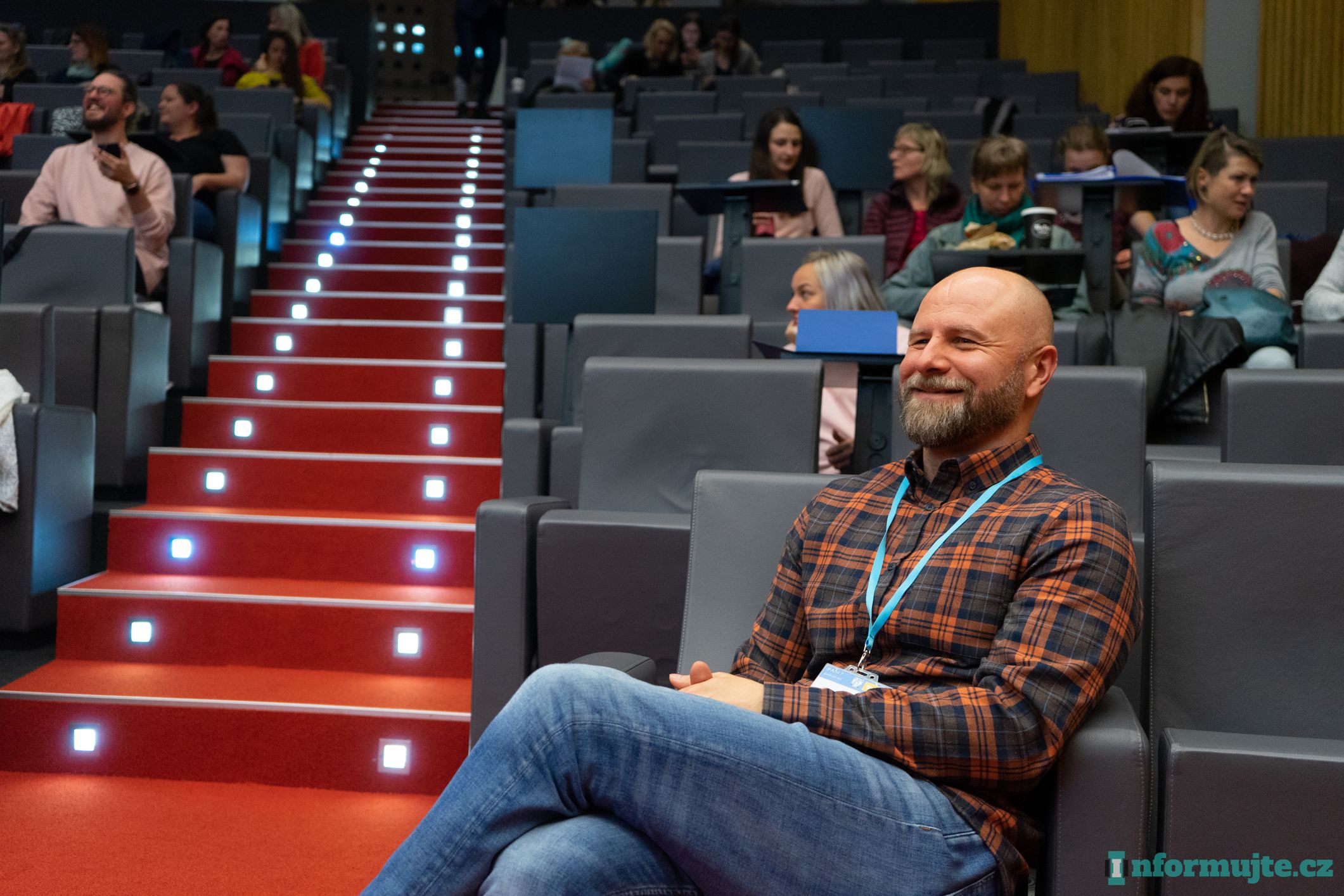
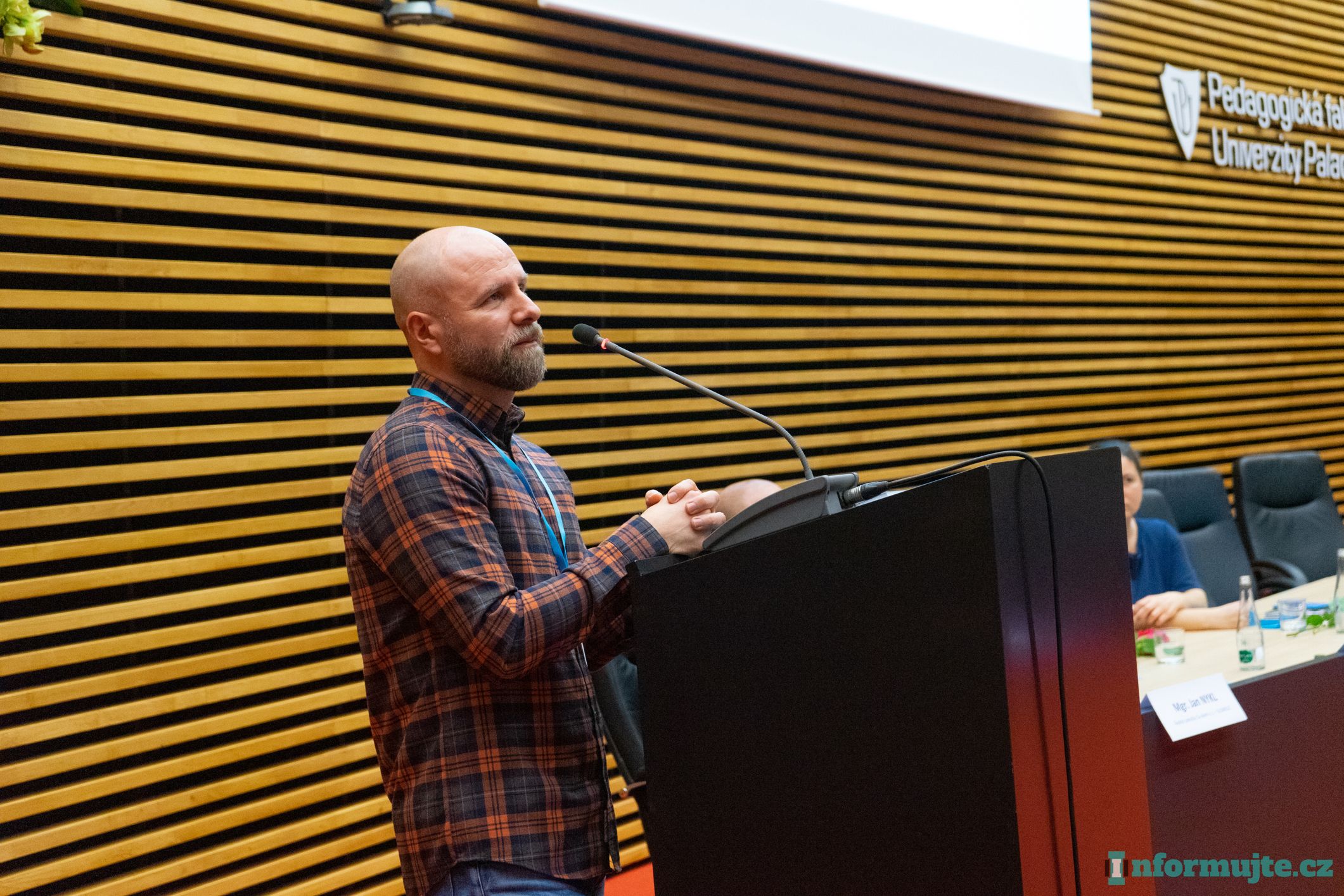


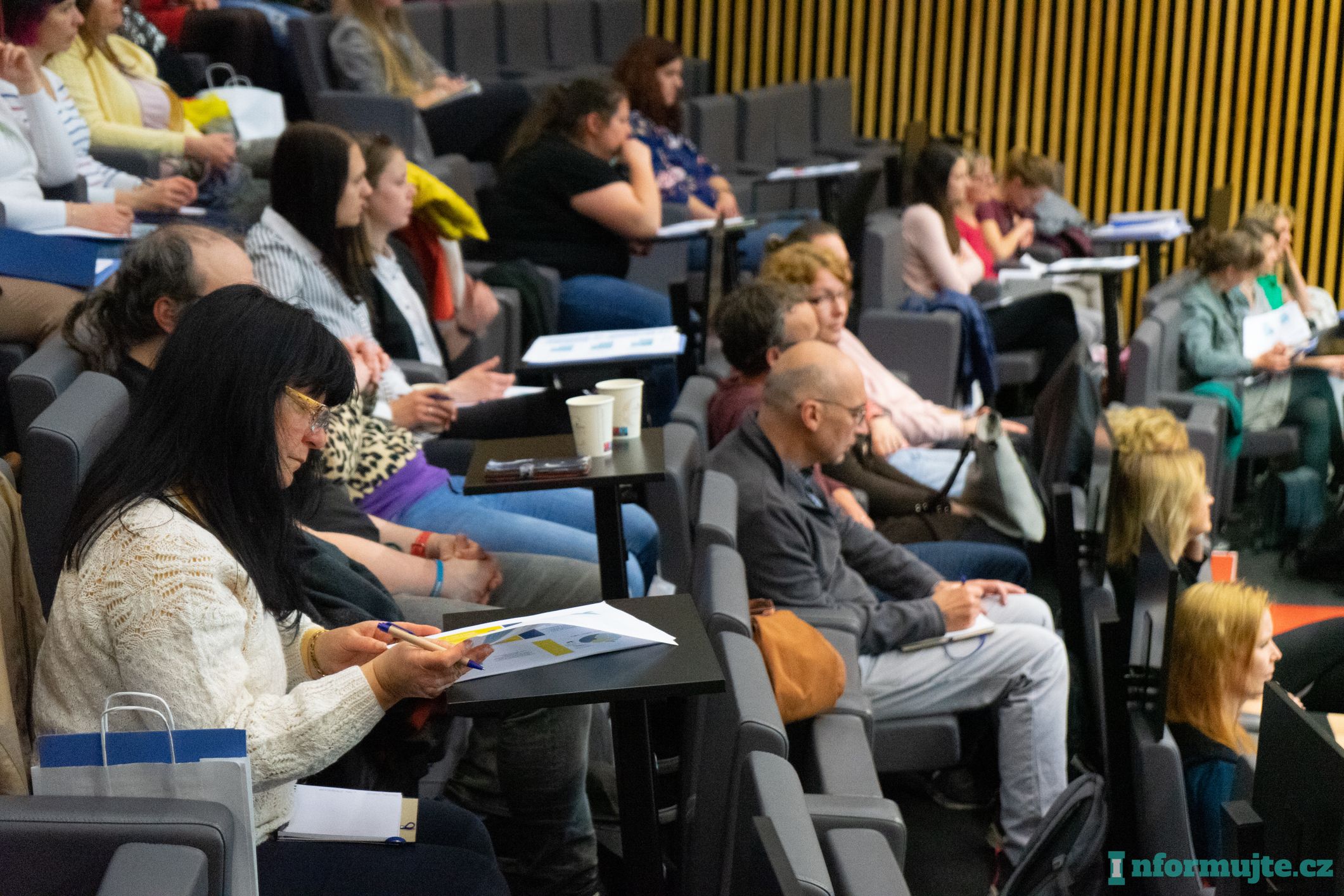


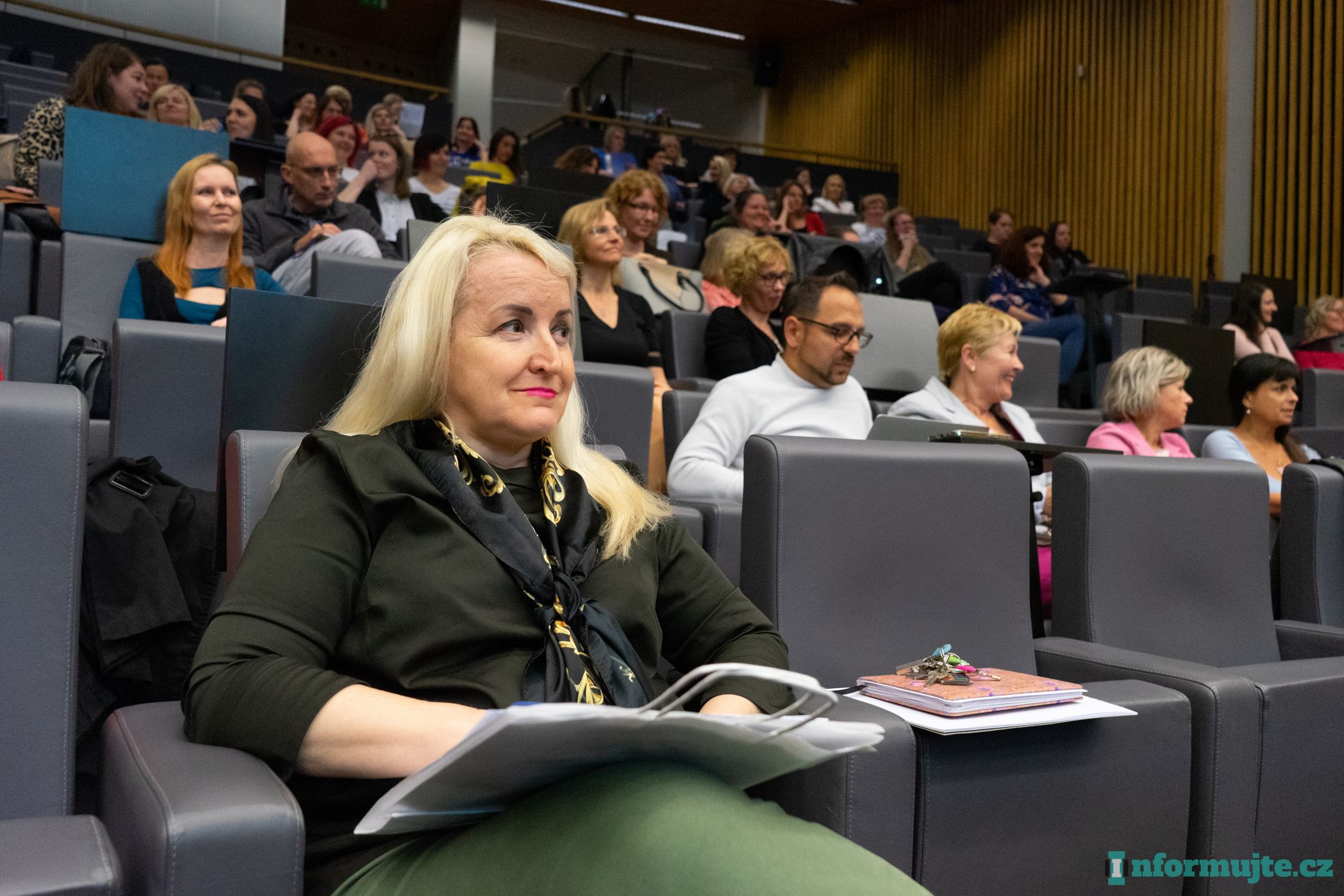

Autistic people and stress
There was a lecture about how autistic people perceive stress, how they feel and how it influences their cognitive functions (reception of stimulus from surroundings, thinking and processing information in a brain). It was presented by Marjon Kuipers and – and a person with autism – Leanderem Westerback van Eertenem.
Marjon Kuipers has been concerning herself with autism, its research and helping autistic people for a long period. She studied a master’s degree in mediation with a specialization on trauma, emotions and stress. Then she studied a second master’s degree in England. Its specialization was communication, behaviour and a trustworthiness analysis.
Leander Westerback van Eertem is an autistic person. He works for The Autism Academy. He helps people with autism to fit in working environment and with communication towards a management of companies. The academy was set up by Marjon Kuipers. Leander studies applied philosophy.
Information below is a combination of both of their speeches.
Fundamental triggers of stress of ASD people are: loss of autonomy, uncertainty and lack of information, lack of connections with other people and surroundings. Consequent stress factors are: a physical injury, a chemical imbalance as drinking alcohol and eating processed food and psychological stress.
The loss of autonomy is about not being able to decide on their own. A part of it is being prevented from experiencing events and circumstances on their own. Things which ASD people don’t like are unsolicited advice and unsolicited help from others. ASD people feel frustrated in such situations. They perceive it as actions against their free will. Normal people don’t see it this way.
If ASD people don’t have enough information about what’s going to happen, they feel uncertainty and anxiety. When they want to make any kind of a decision, they need to have a lot of information. They keep asking others to get them the information. Others may see the questions as redundant and useless. On the other hand ASD people use questions to assure themselves and lower their stress level.
Lack of connections towards others and surroundings lead to a feeling of emptiness and meaninglessness. The reason why they may feel disconnected is that they are rejected by the normal people.
The ASD have a very high stress level all the time in comparison with the normal people. The ASD people are constantly vigilant. They constantly process too much input information from the surroundings. They still have a feeling there is a danger behind the corner. Thus any increase in the stress level leads to an overflow.
The overflow induces three types of reactions: combative and aggressive reaction, flight from the situation or freezing up at the situation. The normal population uses the same reactions to stress as ASD people. The only difference is that ASD people have them triggered considerably earlier and more frequently than normal people. Thus the three reactions happen quite often with autistic people. Normal people’s default stress level is considerably lower. They aren’t in constant stress.
If there is a constant high stress level, it leads to an energy shortage for other activities and tiredness. Relaxation is very important to autistic people as it helps them to lower the stress level and gain the energy. Each ASD person has different activities and methods to relax. Each autistic person must find out what calms them down. Such measures lead to lowering the stress level which in return leads to a lower overflow threshold and less number of inadequate reactions (from the normal people’s point of view) and better life.
Leander also mentioned that having problems with authorities and setting their own boundaries so others don’t break them are issues which ASD people experience. Punishments don’t work on autistic people. ASD people need to be calmed down in order their stress level to be lowered.
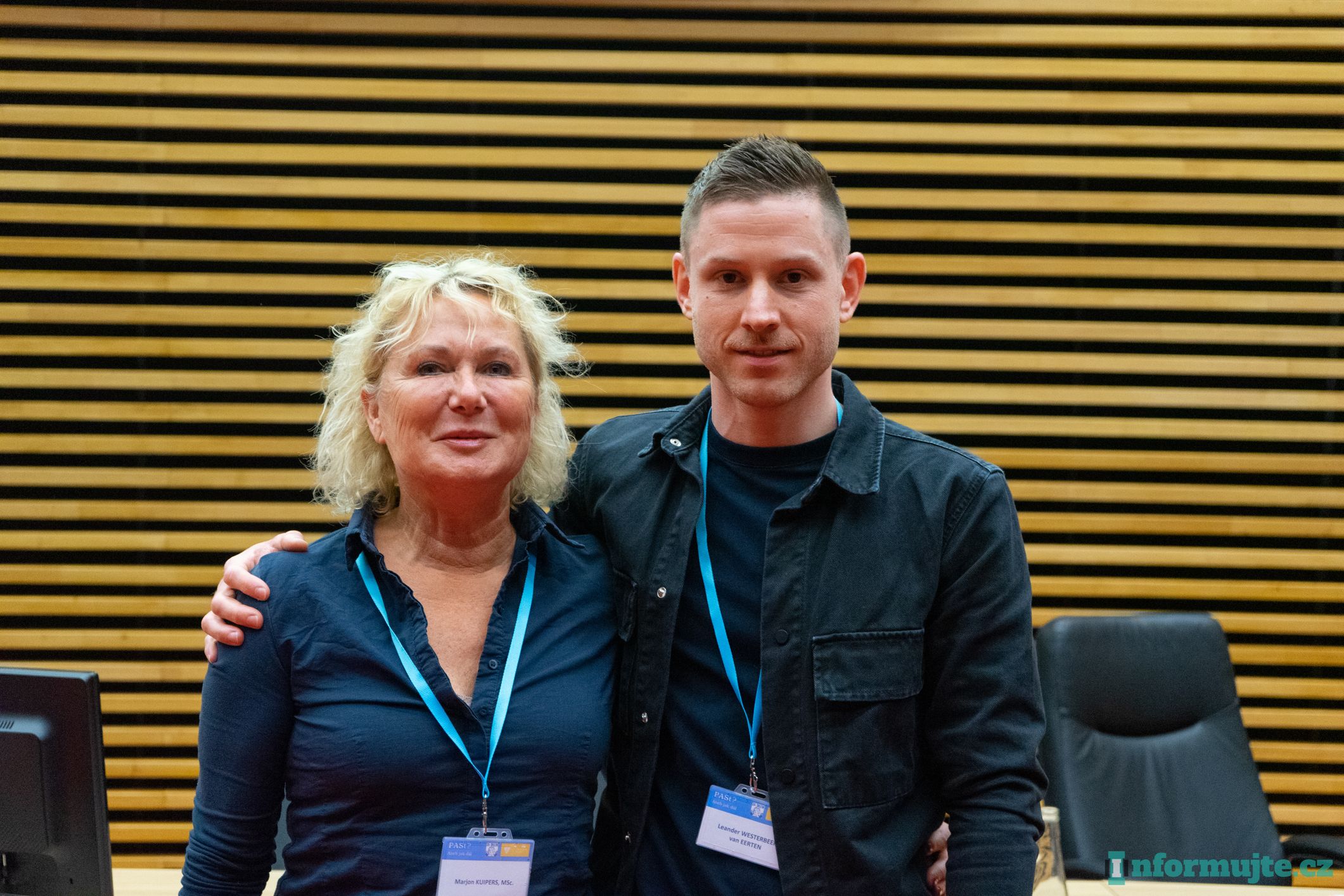

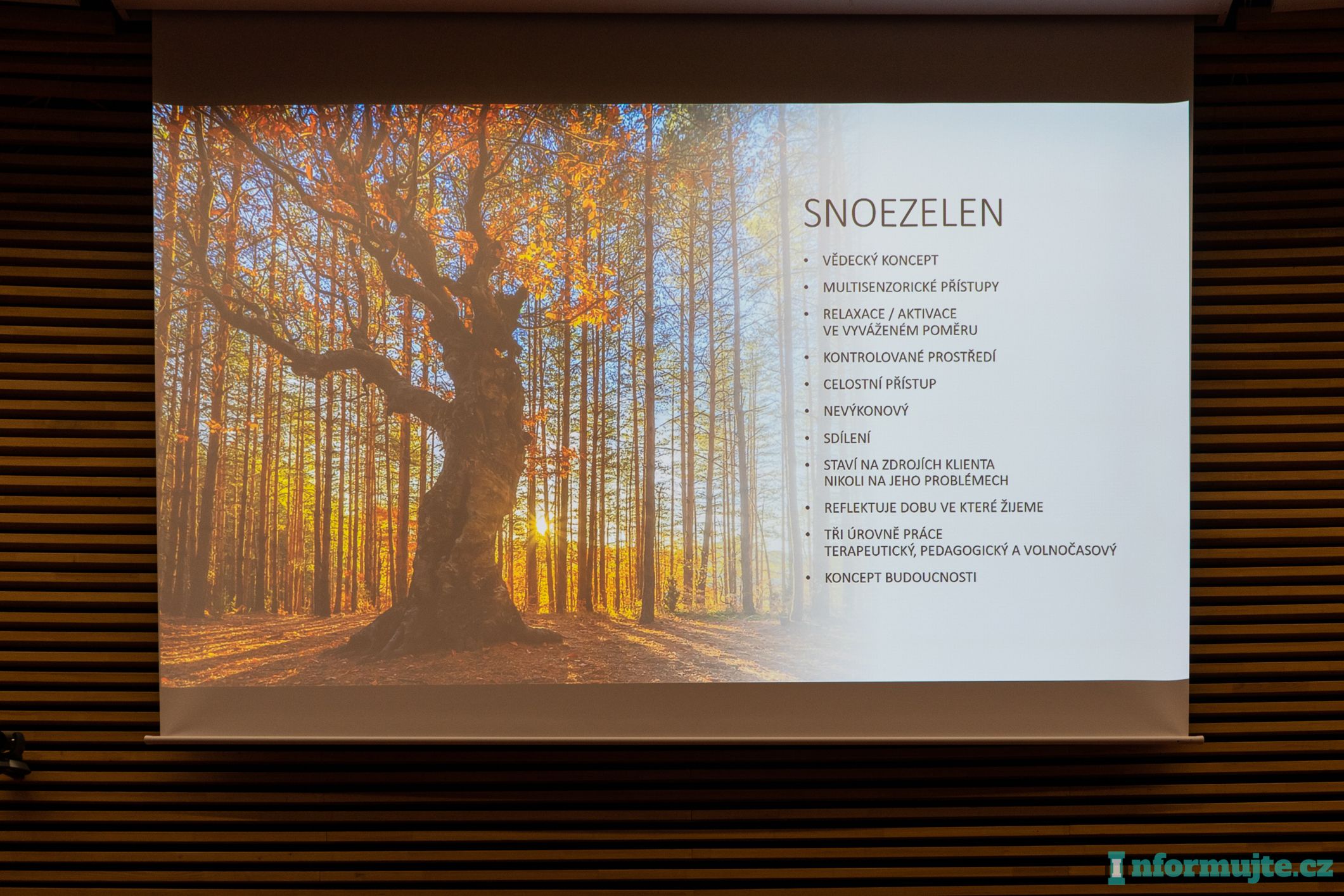

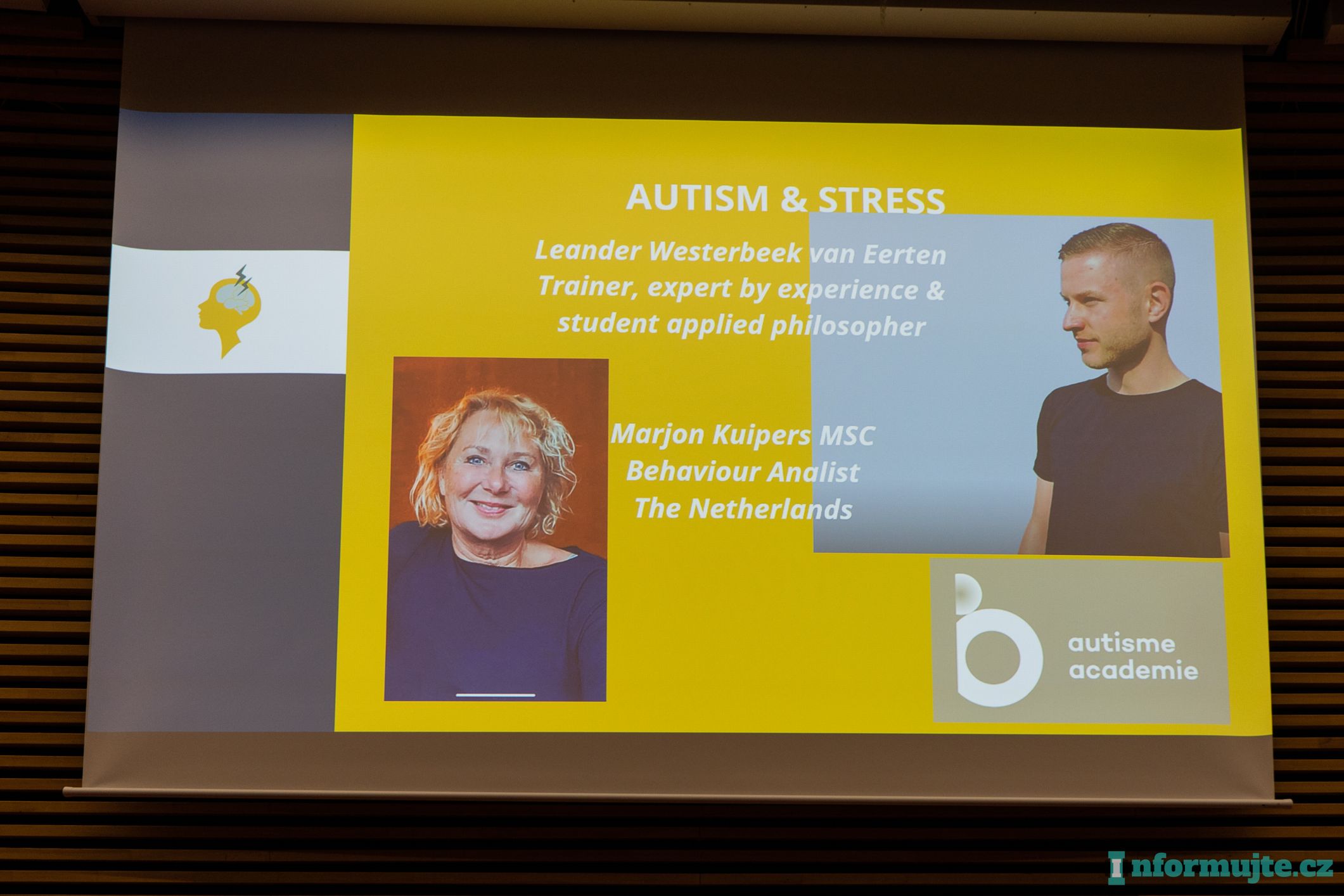
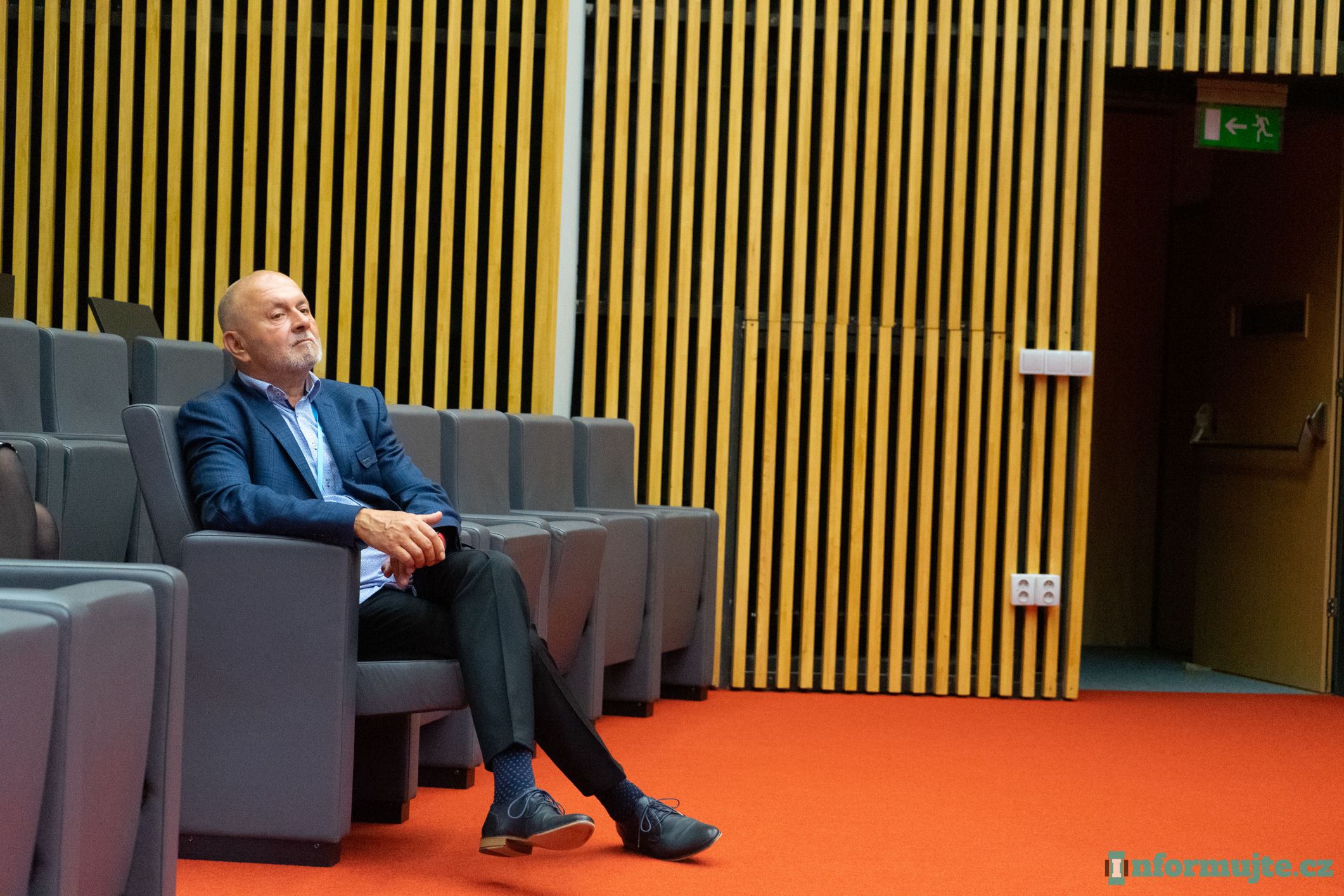
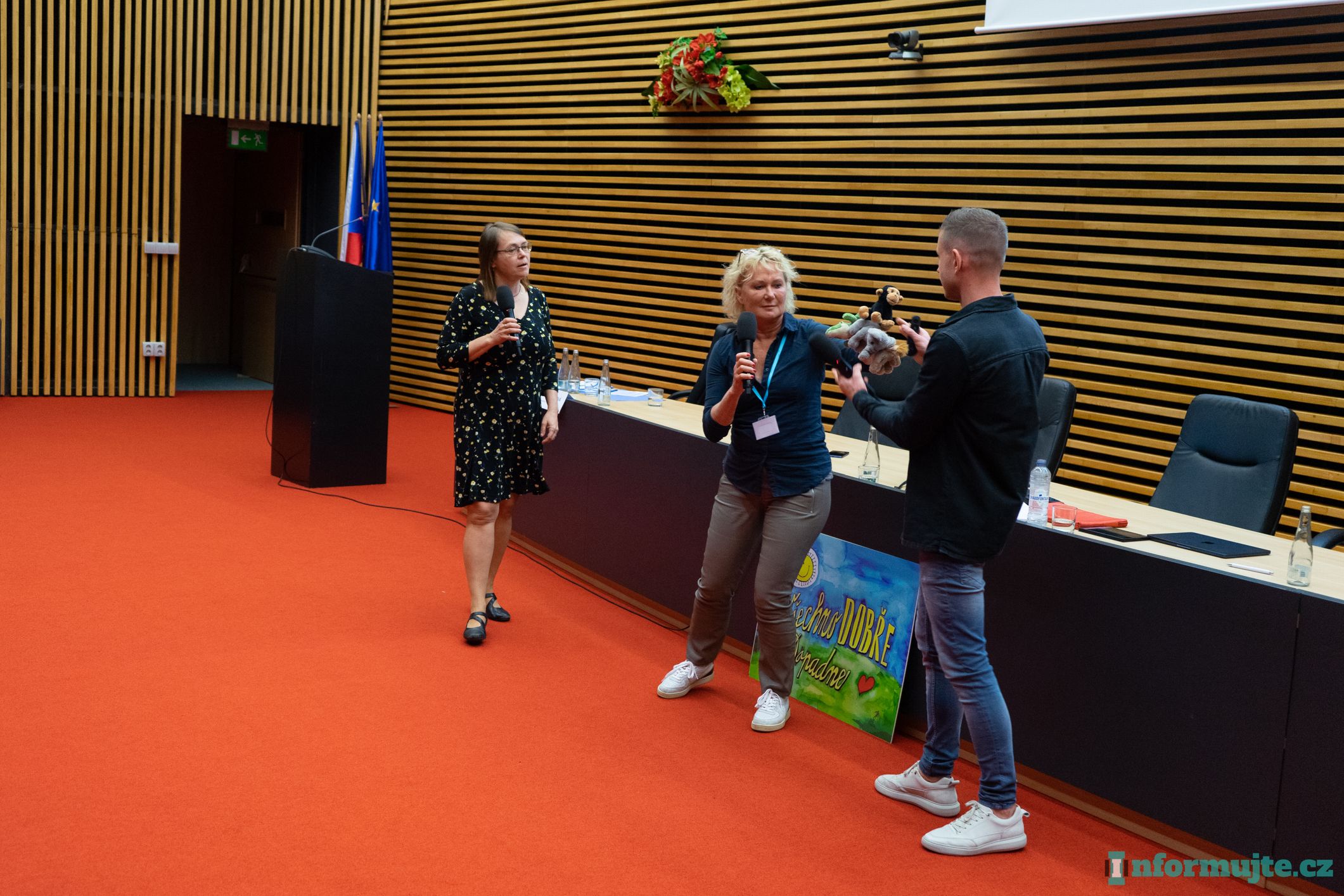
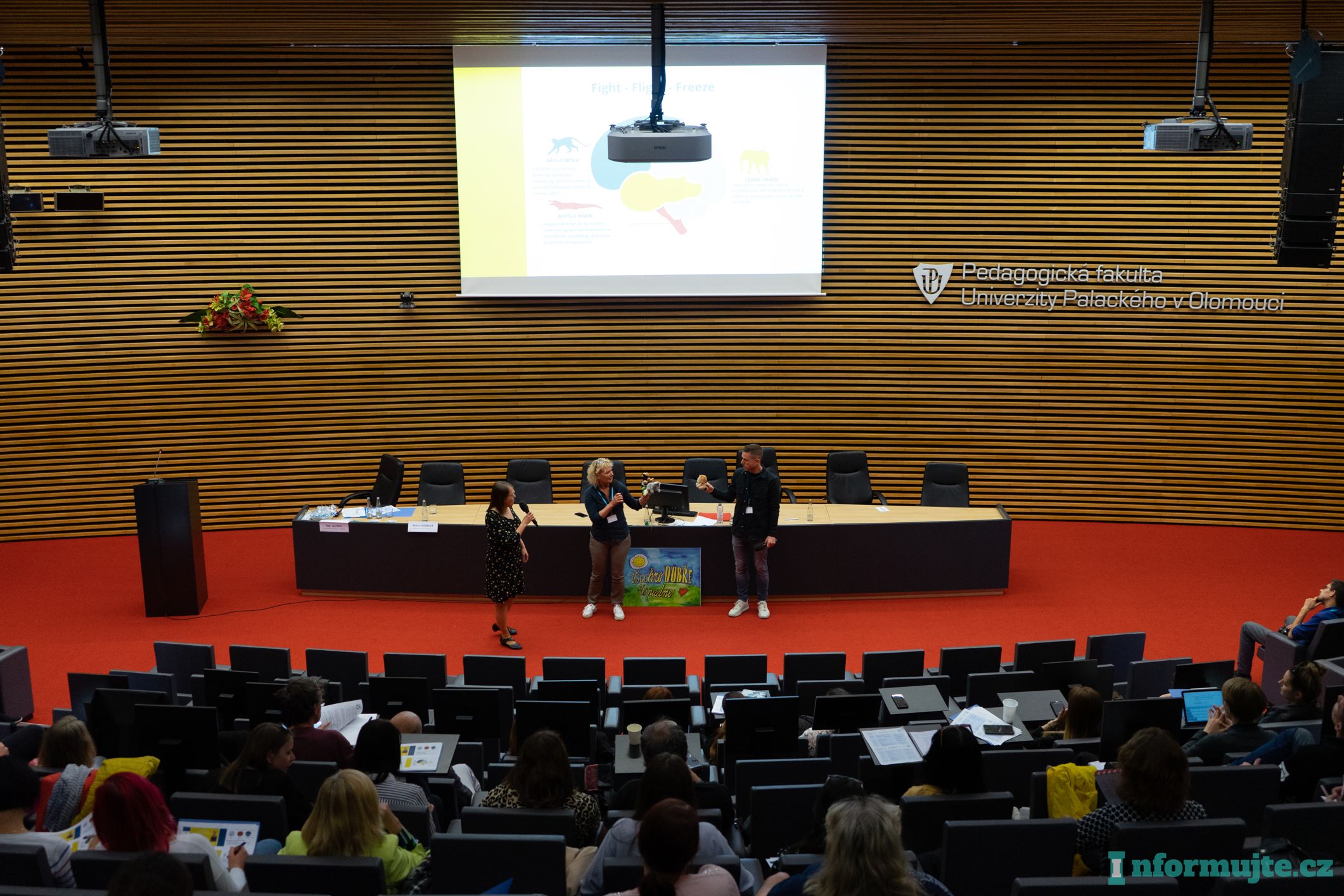
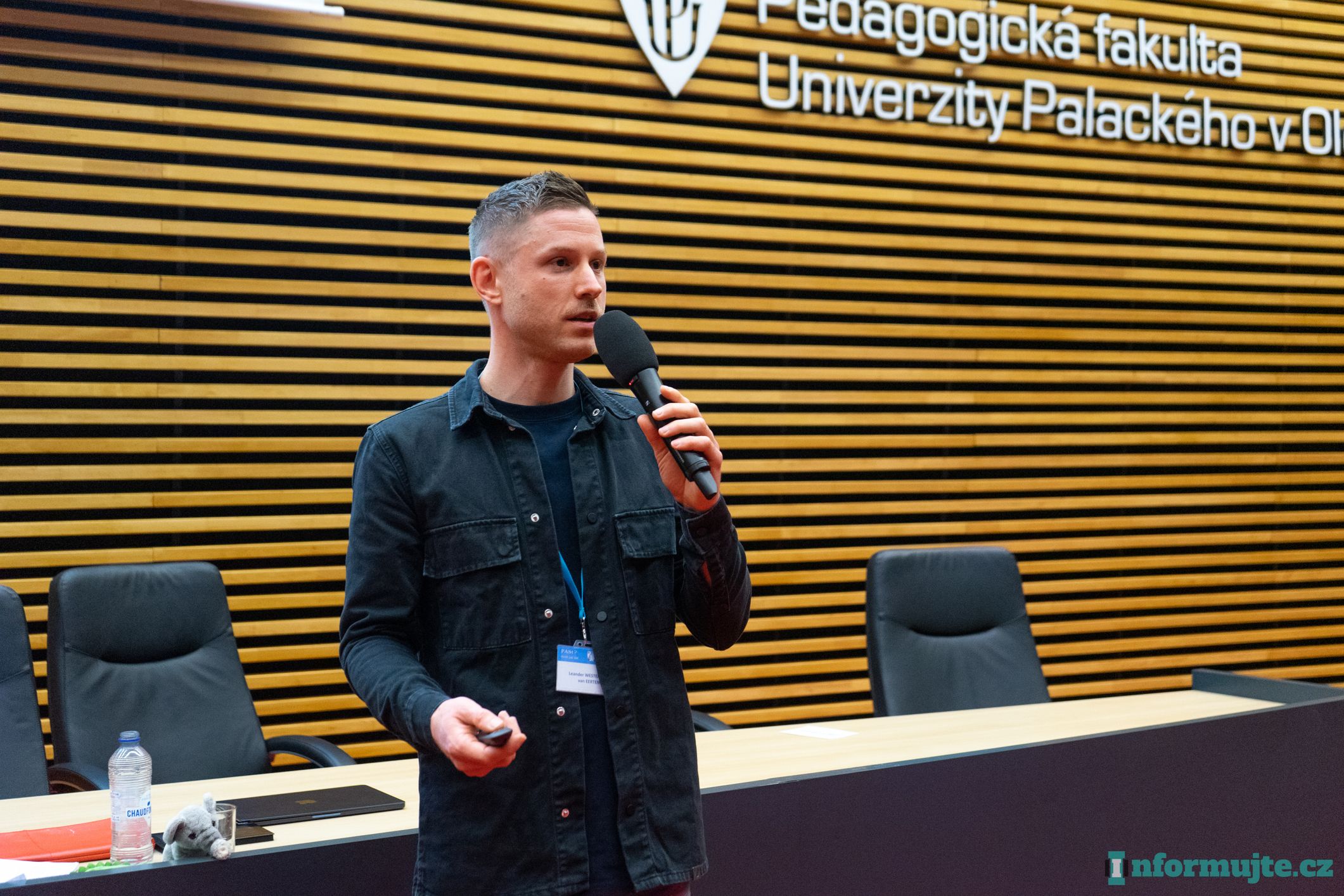
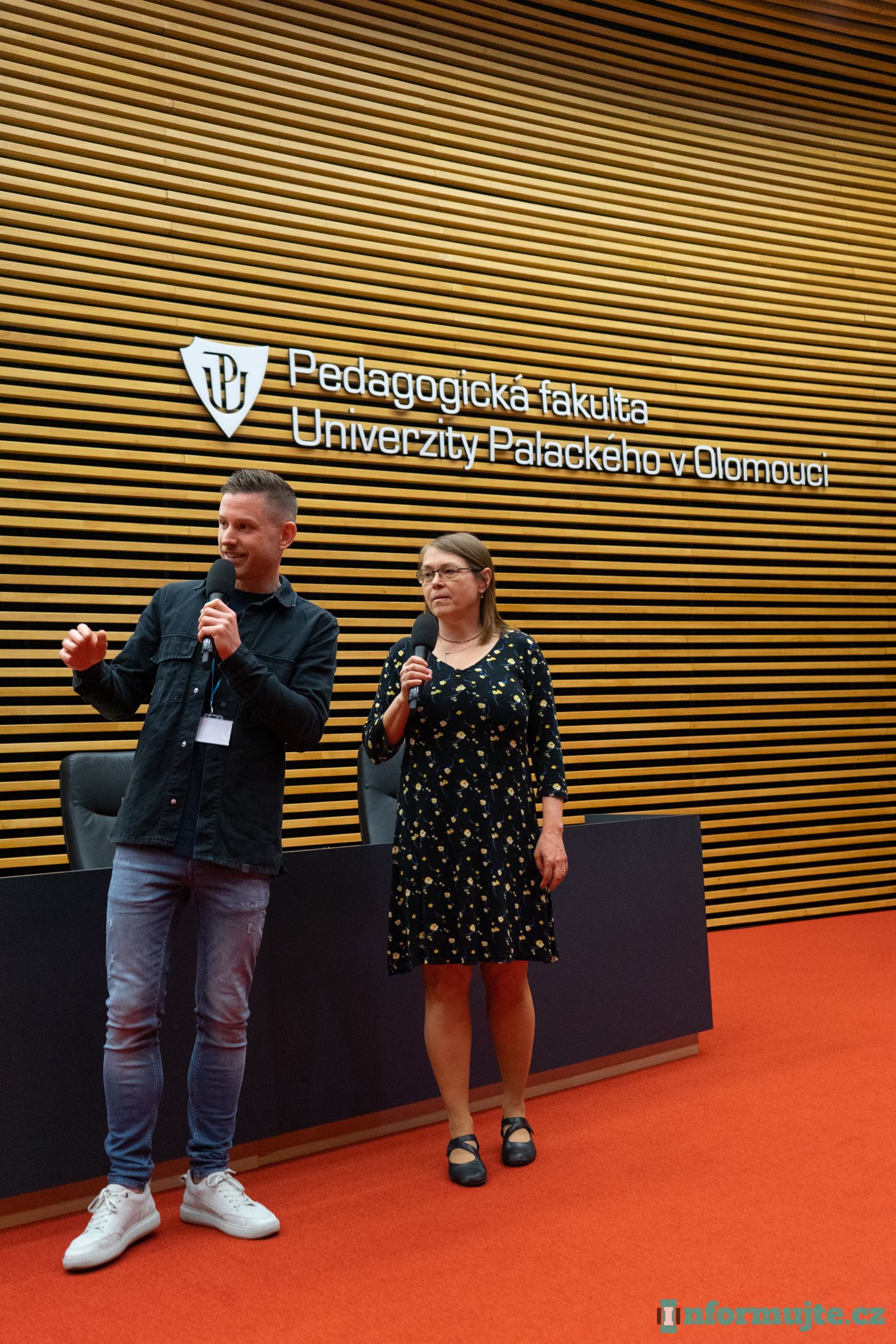




Commercial lecture about Snoezelen
The paragraph below belongs to a genre commentary/opinion.
This lecture was a second one. The lecturer was Renata Filatova. The name of the lecture was myths about Snoezelen. In one sentence, it is a special room which is adjusted sensorily for ASD people (light, smell, temperature, objects in the room etc.)
The quality of the lecture was low. Instead of explaining what it is, the main target of was to direct people on: “What not to buy for a Snoezelen room,” and where to buy the stuff and where to go to a paid Snoezelen training.
Yeah, you guess right. It is necessary to visit Mrs Renata Filatova’s trainings. Two-day training costs 190 €. I guess you’ll find out where to buy the right stuff for the Snoezelen room at the training.
Firstly, a word “commercial” doesn’t match the word “non-profit” at all. In fact they are absolutely in a contradiction. Secondly such a lecture shouldn’t be at such a conference.
I was so confused about the lecture as a layman that I had to look at an article at Wiki to quickly find out.
Dressing room only for VIP guests
There was a dressing room close to the entrance at the premises of the Faculty of Education. However, it was only for coats of lecturers, organizers and the press people. It lowered a level of comfort of attendees a lot and there were coats laying all around.
Order of lectures not kept as expected
The order of the lectures wasn’t kept. The first lecture about history and contemporary state of autism didn’t take place at all. The first lecture was about sexuality of ASD people. The second one was about Snoezelen and the third one was about stress. You can find a list of lectures for the first day here.
During the introductory speech, I didn’t hear any explanation for the unkept order nor an apology. It is customary to inform attendees about changes and apologise. That’s what I’ve seen at different conferences. I consider such manners of the organizers as unprofessional and not fair towards the audience.
There is written: “Program subject to change,” in the leaflet. However it doesn’t change my aforementioned opinion.
Conclusion
In conclusion I can say that the lecture of the Dutch and Mr Eisner were very beneficial and helpful. It can be seen that the ASD matter is more developed in the West than in the Czech republic. Westerners concern themselves more with helping, explaining mechanisms of thinking of ASD people and how to get to the point. It offers a view from the ASD people’s point of view.
On the other hand the Czech environment is still full of academic encyclopedism, which is only suitable for a university exam.
Perhaps the only thing autistic people need is someone who explains them how the world works and how it is seen by normal people.
How often do you meet people who fit the description above? What did you think about them and how did you react on them? Join the discussion below.

